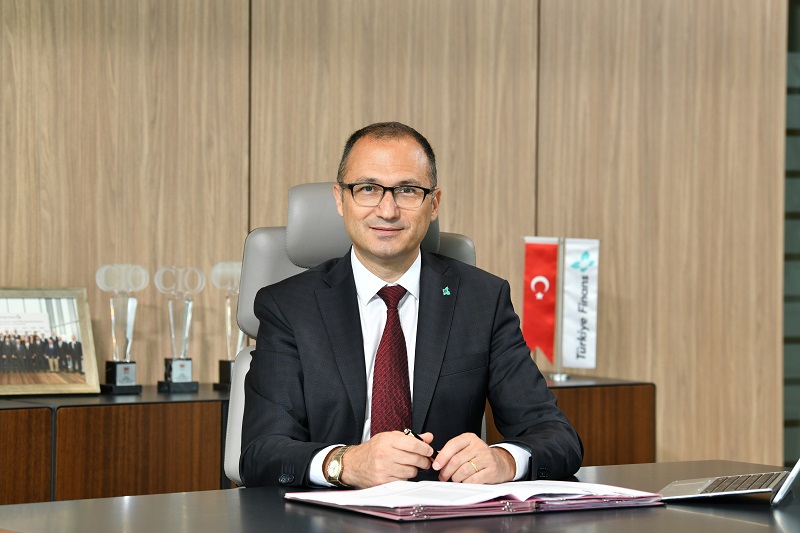Not physical, but digital size will matter


Taking important steps in the field of digital banking with its technology projects, Türkiye Finans has made a rapid entry to the “new normal” with its artificial intelligence supported projects. Türkiye Finans Information Systems and Operations Assistant General Manager Fahri Öbek stated that thanks to the technology they are working on for a long time, they took significant steps in digital banking and added:
“With the pandemic, we suddenly started to work from home. Banks are more corporate structures. Although some banks were more flexible about clothing or working from home, we were on the more traditional, institutional side. We were not very close to the idea of working from home in terms of the lack of security risks and we were not very flexible in clothing. However, we had to send everyone home overnight and made them work from home. When it comes to clothing, you do not need to know what anyone is wearing at home. We have seen that working from home brings no productivity loss, on the contrary, some jobs are much more efficient. We directed employees’ desk phones to Skype. When the desk phones ring when they are away from their device, it also rings Skype over IT. While it used to be difficult to reach people, now we can reach everyone in the office hours. We have decided to continue working remotely, even if the pandemic is over. We also stretched the working hours with an application called ‘Jest’. This caused a cultural change within the organization and the employees were very pleased.
On the digital perspective, we were working on the customer side and this got even faster. The subject that hindered us the most was about getting a physical signature from the customer. With the new law, we are now able to issue cards to existing customers. We can also give cards to a new customer via online interview without a physical signature. We have prepared our infrastructure for this in advance. This will speed up our customer experience a lot. In the coming period, digital size will be more important, not physical size. We will be successful in line with the services we offer digitally. We have a product called ‘fast financing’. We can evaluate the credit of customers who come to our dealers and want to get credit loans within minutes and, if appropriate, make them our customers and grant the loan. This year, we added to this service that the installments of the loans can be paid by using APIs and fintech cooperation. In the use of loans, Türkiye Finans customers will go to the dealer and get the loan, after that pay the installments from the dealer.


Digital projects continue within the institution. We are carrying out artificial intelligence supported projects. We currently have an early warning system that works with artificial intelligence support. We regularly receive data from all sources of our customers that we finance and transfer them to the system. The system calculates whether there is a problem with the customers’ cash flow or payments. The awareness of small-scale or SME-scale companies may not be very high at this point. We try to take action without any problems by contacting the customer within the framework of the actions given by the system. We both help the customers, contribute to the economy for the healthy life of the companies and also contribute to ourselves. Our overdue loans have decreased. This system went live in May 2020, and we have seen a 40% reduction in payments likely to delay from then on. This happened thanks to artificial intelligence.
With the pandemic, our digital use has increased a lot. While we were trying to convince the customer, now the customer has come to demand from us. For a long time, we focused on processing paperless through digital channels. We made transactions such as vehicle loans, consumer loans and personal loans can be carried out via mobile without going to the branch. Our digital channels have increased 6 times with the pandemic. The mobilization of our mobile customers has increased by almost 50%. The use of mobile apps has more than tripled.
Approximately 50% of the resources we spent last year were spent on digital projects. In 2021, this ratio will reach 75%. I do not think this is only happening to us. Probably all institutions will invest in digital. We will focus on there, as well.”











